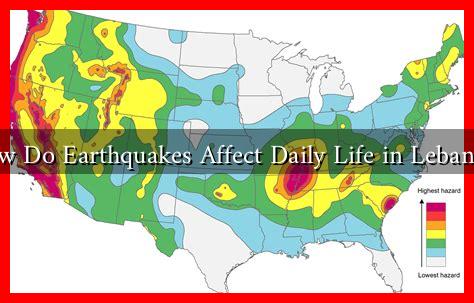-
Table of Contents
How Do Earthquakes Affect Daily Life in Lebanon?
Lebanon, a country located on the eastern shore of the Mediterranean Sea, is known for its rich history, diverse culture, and stunning landscapes. However, it is also situated in a seismically active region, making it vulnerable to earthquakes. The impact of these natural disasters extends far beyond the immediate destruction they cause, affecting various aspects of daily life for the Lebanese population. This article explores how earthquakes influence daily life in Lebanon, examining the social, economic, and psychological ramifications.
The Seismic Landscape of Lebanon
Lebanon is crossed by several fault lines, the most significant being the Dead Sea Transform fault system. This geological feature has been responsible for numerous earthquakes throughout history, some of which have had devastating effects.
. For instance, the 551 AD earthquake, which struck the city of Beirut, is estimated to have killed thousands and caused widespread destruction.
According to the Lebanese National Center for Geophysics, Lebanon experiences minor earthquakes frequently, with larger, more destructive quakes occurring approximately every few decades. The unpredictability of these events creates a constant state of alertness among the population.
Social Impacts of Earthquakes
Earthquakes can have profound social implications for communities in Lebanon. The immediate aftermath of a quake often leads to:
- Displacement: Many families may lose their homes, forcing them to seek temporary shelter with relatives or in makeshift camps.
- Community Disruption: Schools, hospitals, and local businesses may be damaged or destroyed, disrupting daily life and access to essential services.
- Increased Anxiety: The fear of aftershocks and future earthquakes can lead to heightened anxiety and stress among residents.
For example, the 2006 earthquake in the region caused significant damage to infrastructure, leading to the displacement of thousands of families. The psychological toll of such events can linger long after the physical damage has been repaired.
Economic Consequences
The economic impact of earthquakes in Lebanon is substantial. The destruction of infrastructure and property can lead to:
- Loss of Livelihoods: Many businesses may be forced to close, leading to job losses and economic instability.
- Increased Costs: The government and local authorities often face enormous costs related to disaster response and recovery efforts.
- Insurance Challenges: Many residents may not have adequate insurance coverage, leaving them financially vulnerable after a disaster.
According to a report by the World Bank, the economic losses from a major earthquake in Lebanon could reach billions of dollars, significantly affecting the country’s already fragile economy.
Preparedness and Resilience
In light of the ongoing threat of earthquakes, Lebanon has made strides in improving its disaster preparedness and resilience. Initiatives include:
- Public Awareness Campaigns: Educational programs aimed at teaching residents about earthquake safety and preparedness.
- Infrastructure Improvements: Retrofitting buildings and bridges to withstand seismic activity.
- Emergency Response Training: Training for first responders and community leaders to effectively manage disaster situations.
Organizations such as the Lebanese Red Cross play a crucial role in these efforts, providing training and resources to help communities prepare for potential earthquakes. For more information on their initiatives, visit the Lebanese Red Cross website.
Psychological Effects
The psychological impact of earthquakes can be profound and long-lasting. Survivors may experience:
- Post-Traumatic Stress Disorder (PTSD): Many individuals may develop PTSD, leading to anxiety, depression, and other mental health issues.
- Community Trauma: Collective trauma can affect entire communities, leading to a breakdown in social cohesion.
- Generational Impact: The fear and anxiety surrounding earthquakes can be passed down to future generations, affecting their mental well-being.
Addressing these psychological effects is crucial for recovery, and mental health services must be integrated into disaster response plans.
Conclusion
Earthquakes are a significant threat to daily life in Lebanon, impacting social structures, economic stability, and mental health. The unpredictability of seismic activity necessitates ongoing efforts in disaster preparedness and community resilience. By investing in infrastructure improvements, public awareness campaigns, and mental health support, Lebanon can better equip itself to face the challenges posed by earthquakes. Understanding the multifaceted effects of these natural disasters is essential for fostering a more resilient society capable of recovering from the inevitable challenges that lie ahead.





